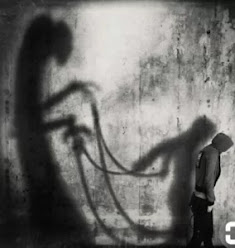BOOK REVIEW: An Introduction to Parapsychology
I will begin this blog by stating that this book is essentially a textbook. If you are interested in Parapsychology; this book is engaging, informative, and a very comprehensive text. However, it does have advanced vocabulary and verbiage.
The authors make a point to begin this text by stating "Most important is the point that in no way is there any presumption here of the existence of "the paranormal," contrary to the approach of many contemporary parapsychologists who actually regard parapsychology as the study of the paranormal." It is often misunderstood that parapsychology is the study of paranormal phenomena, when it is actually the study of psi as it pertains the human psychology. They also go on to say "traditionally there have been three basic domains of parapsychological research, namely extrasensory perception, psychokinesis, and the survival hypothesis." I enjoyed the disclaimers that often popped up with professional and clinical elucidation that outlines the shortcomings of the amateur psychical researchers. "In its early days psychical research too was performed, often on a part-time basis, by amateurs, people who say such work virtually as a recreational pursuit. Part of the effort to achieve scientific status for modern parapsychology has been directed to the growth of professionalism..."
Each chapter, including the Introduction, reviews the given topic and then ends with Key Terms and Concepts with Study Questions. I personally think this would be an excellent book club book for the serious researcher. While many of us could never label ourselves as parapsychologists, we can however model ourselves of these professionals and the first step is to learn appropriate terminology and theory.
It can be appreciated that the authors firmly believe that parapsychology was essentially begun during the Spiritualist Movement when psychical researchers were attempting to discredit or validate the many mediums that populated the globe. While this may have been the building blocks of what is now modern day parapsychology, we cannot forget that the term was coined by J.B. Rhine that succeeded in bringing this study to colleges and scientific organizations. I personally have read many texts regarding the psychical researchers in the 19th century and their efforts were valiant but not well received.
As you move through the information within this book there is a distinct scientific and psychological tone that creates a more professional and varied interpretation of parapsychology. We are given many theories and hypotheses, each from a different standpoint and opinion. It begins with the origins of parapsychology, the phenomenology of ESP, experimental research on ESP, ESP and time, Psychokinesis, PK Research, Theories of Psi, the survival hypothesis, Poltergeist experiences, Near-death, Out-of-Body, Apparitional experiences, reincarnation, belief in the paranormal, matters of relevance, and the evaluation of parapsychology as a scientific enterprise.
If you are interested in paranormal research as a whole which includes human psychology, psi abilities, and more; this is an excellent text to add to your library! I highly recommend it! 100/10 STARS
Co-Founder/ Case Manager
Antietam Paranormal Society
.jpg)



Comments
Post a Comment